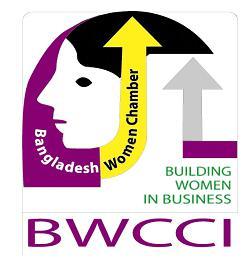
(Image source: www.bwcci-bd.org)
Selima Ahmad is President of the Bangladesh Women Chamber of Commerce and Industry (BWCCI)Women entrepreneurs in Bangladesh face a range of challenges, including social and economic barriers, and networking and management constraints. Some of these challenges can be addressed through targeted government policies, including allocation of sufficient budget funds to support women entrepreneurs. In recent years, the Bangladesh Women Chamber of Commerce and Industry (BWCCI) has been particularly active in promoting such policies. In particular, we are advocating the creation of a separate budget line item of one billion taka (approximately US $13.5 million) to create a National Women’s Entrepreneurship Development Fund. Such a fund could be designed to address various issues, including access to credit, training for women entrepreneurs, and better market access for women.
As more women in Bangladesh launch their own businesses, they are frequently unable to access the financing needed to expand. Currently, the Bank of Bangladesh (BB), the country’s central bank, operates a refinancing program for women offering interest rates of 10 percent on loans of up to 2.5 million taka (approximately US $33,874) against a personal guarantee. Nearly 2,600 women entrepreneurs took part in this program as of March 31, 2011, with approximately 1,800 bank loans and 800 loans from non-bank financial institutions (NBFIs). Over 1.8 billion taka (over US $24 million) has been lent out, but in our view, by 2012, the government should aim to double the number of women-owned enterprises getting bank loans. In particular, the government can expand credit guarantee programs and lower interest rates for women entrepreneurs, set up a special window for financing, pre- and post investment credit counseling, monitor the disbursement credit to women, enable women to access credit without collateral, and even establishing a specialized women’s bank.
One good start has been the creation of dedicated desks for women entrepreneurs at almost all banks in Bangladesh (state-owned and private), to ensure that women can get loans more easily, and on better terms. Approximately 600 branches of various state-owned banks operate such desks, led by Janata Bank, which has desks at over 200 branches. At the same time, more than 800 branches of private banks have women entrepreneurs’ desks, including at 84 branches of Islami Bank. Finally, 35 NBFIs and 74 specialized banks have such desks.
However, at the same time, it is impossible to find reliable data on the number of women entrepreneurs who visit these desks, and how frequently they do so. It is important that the government make an effort to gather such data to improve the operation of these desks.
As mentioned, another issue that should be covered in a national policy for women entrepreneurship is the expansion of training opportunities and capacity building for women seeking to enter business. A specialized unit within the Ministry of Industry to support women might develop a standardized approach for selecting and training potential and current women entrepreneurs, support organizations that offer such training, conduct research on the needs of women entrepreneurs, train those who can in turn train women in running businesses, and encourage the exchange of international experience on supporting women entrepreneurs, among other steps.
Next, emerging sectors of the country’s economy, which are vital for Bangladesh’s growth, should have more projects oriented toward women. This could include women-focused programs in the agriculture and industrial sectors, in rural development, transport, communications, oil and gas, education, and science and technology. Training programs for women should be established that focus on information technology (IT), as well as traditional foci such as garment manufacturing and handicrafts. To this end, more polytechnic and IT programs should be expanded to the village level.
Finally, marketing and communications skills should be taught, and steps should be taken to ensure better access for women entrepreneurs to market the goods they produce. In addition, in our view, rather than targeting solely poor women, who have very little ability to launch a business venture, successful programs should look at how to expand economic participation among middle class women. This means expanding access to technology, financial resources, and utilities, as well as easing transport and communications constraints.
Funds should also be allocated locally, through the Ministry of Local Government, Rural Development & Co-operatives, and directly to local governments to encourage the development of entrepreneurship among rural women. This might include the establishment of resource centers for women at the district level to provide research and data is necessary to identify problems faced by women entrepreneurs, to counseling and train women entrepreneurs, and engage in advocacy and awareness-raising on the role that women can play in the economy. Other steps that can be taken to encourage women’s entrepreneurship would include supporting women whose husbands are working as laborers outside the country.
BWCCI is confident that making such budget funds available to support the development of women entrepreneurs in Bangladesh will pay dividends not only to the women and their families who benefit directly, but for the strength of the country’s overall economy. As has been pointed out frequently, women do two-thirds of the world’s work, but receive only 10 percent of the world’s income, and produce half of the world’s food, but only own one percent of the world’s farmland. In Bangladesh in particular, to increase women’s contribution to the economy and help mitigate problems such as domestic violence and discrimination, it is necessary to engage more women as entrepreneurs.
To learn more about BWCCI’s work join us at CIPE’s upcoming Democracy that Delivers for Women conference June 20-21 in Washington DC where Selima Ahmad will be a speaker. It is not too late to register! www.democracythatdelivers.com

